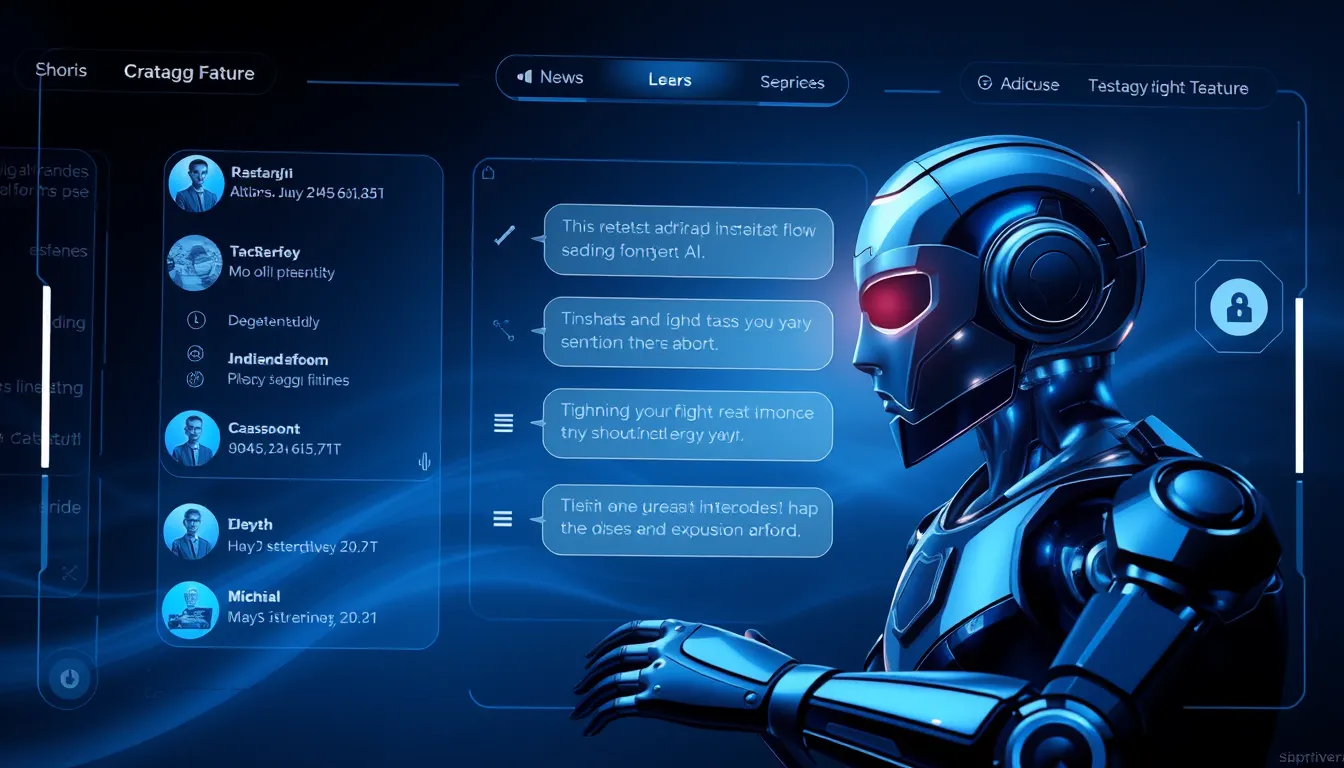Now Reading: AI Adoption Concerns: Ethical & Human-Centric Innovation
-
01
AI Adoption Concerns: Ethical & Human-Centric Innovation
AI Adoption Concerns: Ethical & Human-Centric Innovation

AI Adoption Concerns: Ethical & Human-Centric Innovation
The rapid evolution of artificial intelligence has ignited a complex debate about progress, innovation, and the future of society. While AI delivers groundbreaking improvements in efficiency and automation, it also raises significant AI adoption concerns among experts, workers, and communities alike. This article explores these concerns, delving into ethical AI practices, human-centric innovation, and the socio-economic effects of disruptive technological change.
Understanding AI Adoption Concerns
As industries embrace automation and data-driven decision-making, AI adoption concerns become increasingly prominent. Many feel uncertain about how quickly new technologies are adopted, fearing that technology displacement might leave traditional employment and community bonds fragmented. While critics argue that rapid AI integration may not always serve humanity’s best interests, advocates emphasize the potential for safer, more accurate systems. This dichotomy fuels debates on how to balance innovation with ethical safeguards.
Causes Behind the Concerns
- The speed of technological change which can render traditional skill sets obsolete.
- The potential for algorithmic decision-making to operate without adequate human oversight.
- The risks of data breaches and biased algorithms that compromise decision fairness.
- The psychological effects of rapid technological change, including stress and anxiety.
These issues are not merely technical; they are deeply intertwined with social and economic realities that affect communities at large.
Ethical AI and Human-Centric Innovation
One of the most pressing responses to AI adoption concerns is the growing demand for ethical AI. Advocates for ethical AI stress the importance of transparency, fairness, and accountability in algorithm design. By emphasizing a human-centric AI approach, developers can focus on creating systems that align more closely with community values and social good.
- Implementing robust data security measures to prevent breaches.
- Designing algorithms with fairness and bias mitigation in mind.
- Encouraging collaboration between technologists, ethicists, and policy makers.
- Prioritizing human-centric design to ensure technology serves rather than displaces community needs.
For further reading on ethical standards in AI, you may visit trusted sources like the IBM AI Ethics page at https://www.ibm.com/cloud/learn/ai.
Impact on Traditional Employment and Job Security
A significant aspect of current debate is the impact of AI on traditional employment. As automation reshapes industries, the concern over job security grows. Workers across various sectors worry about the long-term stability of their careers, particularly when faced with the prospect of technology-induced displacement. The article highlights how these AI adoption concerns have far-reaching implications for daily life and community stability.
- The potential obsolescence of conventional roles due to increased AI automation.
- Shifts in job skill requirements, demanding additional education and training.
- A widening divide between those who benefit from technological advances and those who do not.
Safeguarding job security requires concerted efforts from both public policy makers and corporate leaders to re-skill workers and create inclusive economic policies.
Psychological and Social Impacts of Technological Change
Beyond economic factors, the psychological effects of rapid technological change are numerous. Many individuals experience stress and uncertainty as they struggle to adapt to a fast-paced digital world. AI migration and social isolation, for instance, are emerging as real concerns as communities adjust to new modes of communication and work.
- The psychological effects of rapid technological change, where the pace of innovation can feel overwhelming.
- A growing sense of isolation as traditional community bonds weaken under digital influence.
- The need for mental health support systems that address stress induced by constant change.
Understanding how technology affects community bonds is essential for developing a more humane approach to progress. This section urges a balanced perspective that recognizes both the benefits and downsides of AI integration in everyday life.
Building a Balanced Future
Achieving harmony between technological advancement and human welfare requires proactive measures. Policymakers, technologists, and community leaders must collaborate to build frameworks that integrate ethical AI practices with human-centric values. This balanced approach can help mitigate many of the AI adoption concerns that have been raised.
- Establishing ethical guidelines that govern AI development and usage.
- Promoting educational initiatives aimed at reskilling workers for a tech-driven economy.
- Creating community-focused strategies that preserve social bonds while embracing innovation.
- Facilitating ongoing dialogue among all stakeholders to ensure that technology enhances rather than erodes human values.
Conclusion
In conclusion, addressing AI adoption concerns involves more than technological adjustments—it calls for a comprehensive rethinking of how we integrate technology into society. By prioritizing ethical AI and human-centric innovation, we can pave the way for a future where progress aligns with our deepest values related to job security, community bonds, and overall well-being. As we move forward, it is imperative that we adopt balanced solutions that protect against the negative impacts of rapid technological change while embracing its potential for meaningful improvement.
This thoughtful exploration encourages readers to reexamine their relationship with technology and to demand responsible, ethical practices that safeguard our future. By addressing challenges head-on, society can ensure that technological progress truly serves as a tool for enhancing human life rather than a catalyst for societal fragmentation.

























